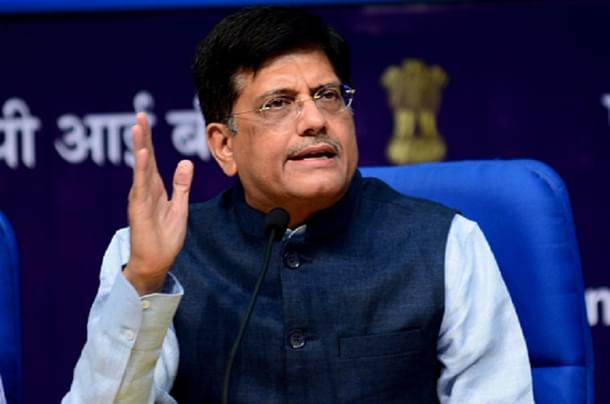Insta
Piyush Goyal’s UDAY Scheme Makes Power DISCOMs In Rajasthan, Haryana, Chhattisgarh Profitable Again
Swarajya Staff
Mar 04, 2017, 01:10 PM | Updated 01:10 PM IST
Save & read from anywhere!
Bookmark stories for easy access on any device or the Swarajya app.


The Ministry of Power under Piyush Goyal had launched Ujwal DISCOM Assurance Yojana (UDAY) in 2015. The aim was to find a permanent solution to the financial mess that government-owned electricity distribution companies found themselves in.
The scheme has now started making a difference, reported The Economic Times today (4 March), and is moving towards realising its objective of a financial turnaround and a revival of DISCOMs, which have only accumulated debt over the past decades.
According to the report, the scheme has been adopted in 22 states and has helped DISCOMs there come out of the debt trap. Rajasthan, Haryana, Chhattisgarh and Punjab have emerged as the big gainers.
Dakshin Haryana Bijli Vitran Nigam in Haryana, as Swarajya reported earlier, has eliminated losses for the first time ever since its establishment. The DISCOM, which had reported losses of more than Rs 2,088 crore in 2014, registered a profit of Rs 78 crore. In Rajasthan, DISCOMs have projected a saving of Rs 4,697 crore.
Another major achievement is the announcement of power tariffs in 18 of the 22 states, which means they are maintaining financial viability. The Finance Ministry has allowed 12 of the 22 member states to issue bonds worth Rs 194,681.49 crore to alleviate the debt crisis.
The daily quoted an official as saying,
With coal rationalisation and import substitution, NTPC has been able to achieve savings of 32 paise/unit. Even considering coal price hike, increase in clean energy cess & railway freight, there is a net benefit of 6.5 paise/unit.
The ministry has taken other initiatives to restore the financial viability of these DISCOMs too, primarily by making their operations more efficient through training and streamlining of the bureaucratic red-tape. When UDAY was launched, there was ample scepticism about the scheme being yet another attempt to recapitalise loss-making businesses with no accountability. Its success seems to have alleviated some concerns.





